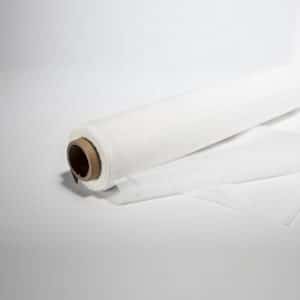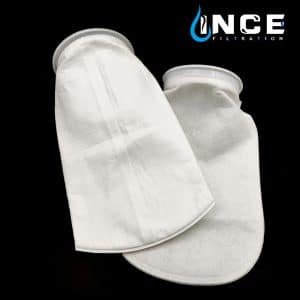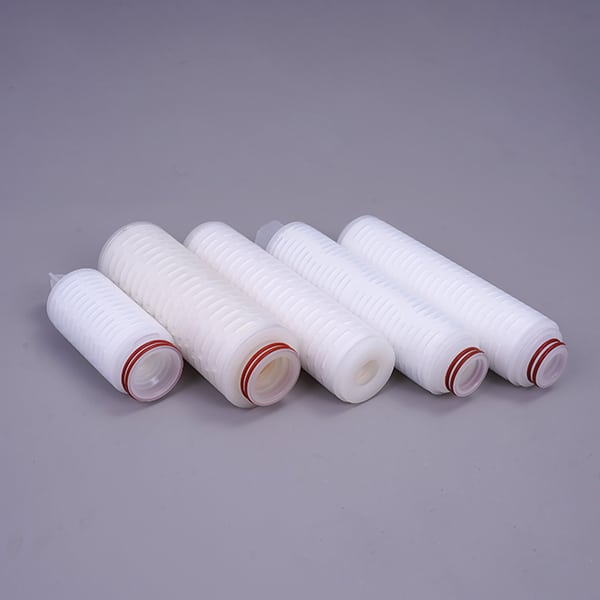
Corn Fiber Non-Woven Fabric Triangular Tea Bags: A Sustainable and Functional Innovation
Corn Fiber Non-Woven Fabric Triangular Tea Bags: A Sustainable and Functional Innovation
In recent years, the global shift towards sustainability and eco-consciousness has driven innovation across various industries. The food and beverage sector, in particular, has been at the forefront of this change, with companies striving to create more environmentally friendly packaging and product solutions. One such innovation is the corn fiber non-woven fabric triangular tea bag. This novel approach to tea packaging combines both the functional benefits of modern material science with the environmental advantages of biodegradable and renewable resources. This article delves into the features, benefits, production process, and growing market potential of corn fiber non-woven fabric triangular tea bags.
1. Introduction to Corn Fiber and Non-Woven Fabrics
Corn fiber, also known as polylactic acid (PLA), is a biodegradable material derived from the fermentation of cornstarch. It is part of a class of bioplastics that offer a sustainable alternative to petroleum-based plastics. PLA is made by fermenting corn sugar into lactic acid, which is then polymerized into PLA. This material is biodegradable, compostable, and renewable, making it an excellent choice for eco-friendly applications.
Non-woven fabrics, on the other hand, are materials made by bonding or entangling fibers together through chemical, mechanical, or thermal processes. Unlike woven fabrics, which are made by interlacing threads, non-woven fabrics are produced directly from fibers, resulting in a material that is strong, lightweight, and versatile. When these two materials—corn fiber and non-woven fabric—are combined, the result is a durable yet biodegradable fabric that serves as the perfect material for triangular tea bags.
2. Features of Corn Fiber Non-Woven Fabric Triangular Tea Bags
The triangular shape and the use of corn fiber non-woven fabric in tea bags offer several distinct advantages over traditional tea bags made from paper or plastic. Here are some of the key features:
2.1. Biodegradability and Sustainability
The primary advantage of using corn fiber for tea bags is its biodegradability. Unlike traditional nylon or PET (polyethylene terephthalate) tea bags, which are derived from petroleum and can take centuries to break down, corn fiber tea bags are compostable and will naturally decompose over time. This reduces the environmental impact and supports the growing demand for sustainable packaging options.
2.2. Breathability and Efficient Infusion
Corn fiber non-woven fabric is highly breathable, allowing water to flow freely through the tea bag and ensuring that the tea leaves inside are fully immersed in the water. This results in a more efficient extraction of the tea’s flavor, aroma, and nutrients compared to conventional tea bags, which may inhibit the flow of water due to the dense structure of their material.
2.3. Heat Resistance and Durability
Corn fiber non-woven fabric is heat-resistant, meaning it can withstand the high temperatures of boiling water without breaking down or releasing harmful chemicals. This ensures the tea bag retains its shape and integrity throughout the steeping process. The durability of the fabric also means that the tea leaves remain securely inside the bag, preventing any loose particles from escaping into the tea.
2.4. Transparency and Aesthetic Appeal
The translucent nature of the corn fiber non-woven fabric adds a level of aesthetic appeal to the triangular tea bag. Consumers can see the tea leaves through the bag, giving them a visual cue of the quality of the tea. This is especially important for premium teas, where the whole leaves and visible ingredients are a sign of high quality.
2.5. Triangular Design for Maximum Infusion
The triangular shape of these tea bags allows for more space inside the bag, giving the tea leaves room to expand and move around as they steep. This design enhances the infusion process, ensuring that the tea leaves are exposed to more water and providing a fuller, richer flavor compared to flat, rectangular tea bags.
3. Production Process of Corn Fiber Non-Woven Fabric Tea Bags
The production process of corn fiber non-woven fabric triangular tea bags involves several steps:
3.1. Sourcing and Processing Corn Fiber
The first step in creating corn fiber tea bags is the production of PLA. Corn is harvested and processed to extract the starch, which is then fermented into lactic acid. This lactic acid is polymerized to create PLA, which can be spun into fibers suitable for non-woven fabric production.
3.2. Fabric Formation
Once the corn fiber is prepared, it is processed into a non-woven fabric. This is typically done using a melt-blown or spunbond process, where the fibers are extruded, laid down in a web, and bonded together using heat or pressure. The result is a strong, durable fabric that retains the biodegradable properties of PLA.
3.3. Tea Bag Assembly
The non-woven fabric is then cut and shaped into triangular tea bags. Modern machinery is used to form the fabric into the triangular shape, seal the edges, and insert the tea leaves into the bag. Some tea bag manufacturers also attach strings and tags to the tea bags for easy handling by consumers.
4. Benefits for Consumers and the Environment
Corn fiber non-woven fabric triangular tea bags offer several benefits both for consumers and the environment:
4.1. Consumer Health and Safety
Traditional tea bags made from nylon or PET can release microplastics when steeped in hot water. Microplastics are not only harmful to the environment but can also pose health risks when ingested. Corn fiber tea bags, being biodegradable and free from petroleum-based plastics, do not release microplastics, making them a safer option for consumers.
4.2. Reduced Environmental Impact
The use of renewable corn-based materials significantly reduces the carbon footprint associated with tea packaging. Corn fiber requires less energy to produce compared to conventional plastics and generates fewer greenhouse gases during its lifecycle. Furthermore, its compostability ensures that corn fiber tea bags do not contribute to landfill waste or ocean pollution.
4.3. Enhanced Tea Experience
Consumers appreciate the superior brewing performance of triangular tea bags made from corn fiber. The breathable fabric and spacious triangular shape allow for better infusion, resulting in a richer and more aromatic tea. The translucent fabric also lets consumers see the quality of the tea leaves, adding to the overall experience.
5. Market Potential and Future Outlook
The market for sustainable packaging solutions, including corn fiber non-woven fabric triangular tea bags, is growing rapidly. As more consumers become aware of the environmental impact of their purchasing decisions, there is increasing demand for eco-friendly alternatives to conventional products. Tea companies that adopt biodegradable packaging, such as corn fiber tea bags, can attract environmentally conscious consumers and enhance their brand image.
In addition to the consumer market, governments and regulatory bodies worldwide are imposing stricter regulations on single-use plastics, further driving the demand for sustainable alternatives. As the cost of producing bioplastics like PLA decreases with technological advancements, it is likely that corn fiber tea bags will become more affordable and widely available in the future.
Conclusion
Corn fiber non-woven fabric triangular tea bags represent an innovative and sustainable solution in the tea industry. With their biodegradable properties, superior infusion capabilities, and aesthetic appeal, these tea bags offer a more environmentally friendly and enjoyable tea experience for consumers. As the world continues to prioritize sustainability, products like corn fiber tea bags are set to play a crucial role in shaping the future of packaging and contributing to a more sustainable global economy.


10 Micron Nylon Filter Cloth: The Ultimate Solution for High-Precision Filtration

100 Micron Nylon Mesh: A Reliable Solution for Filtration and Screening

190 Micron Paint Filter: The Essential Tool for Flawless Painting

25 Micron Nylon Mesh: The Perfect Solution for Precision Filtration

40 Micron Nylon Mesh: Precision Filtration for Superior Performance

5 Micron Nylon Filter Cloth: High-Efficiency Filtration for Precision Applications

50 Micron Nylon Mesh: A Versatile Filtration and Screening Solution

Comprehensive Guide to Filter Bags and Related Products: A Solution for Clean Air, Water, and Dust Management

